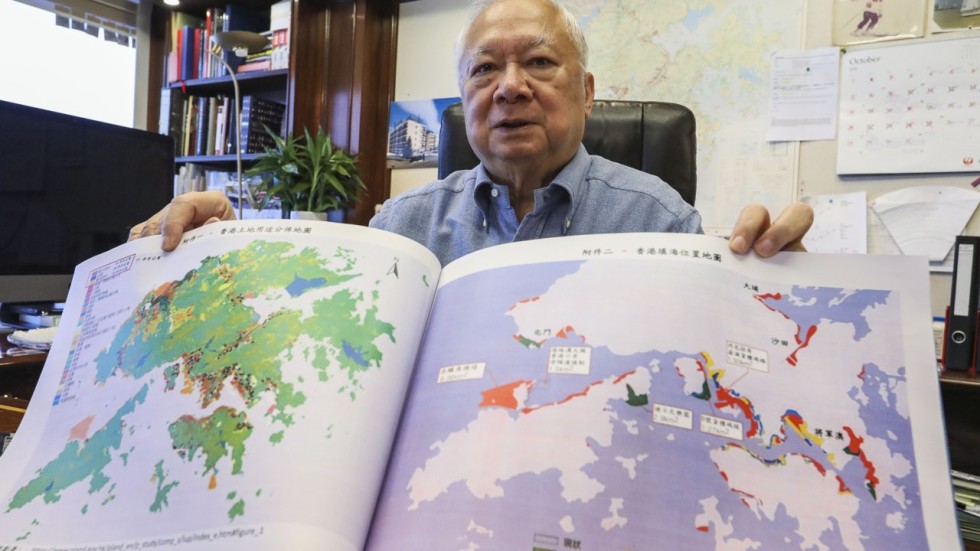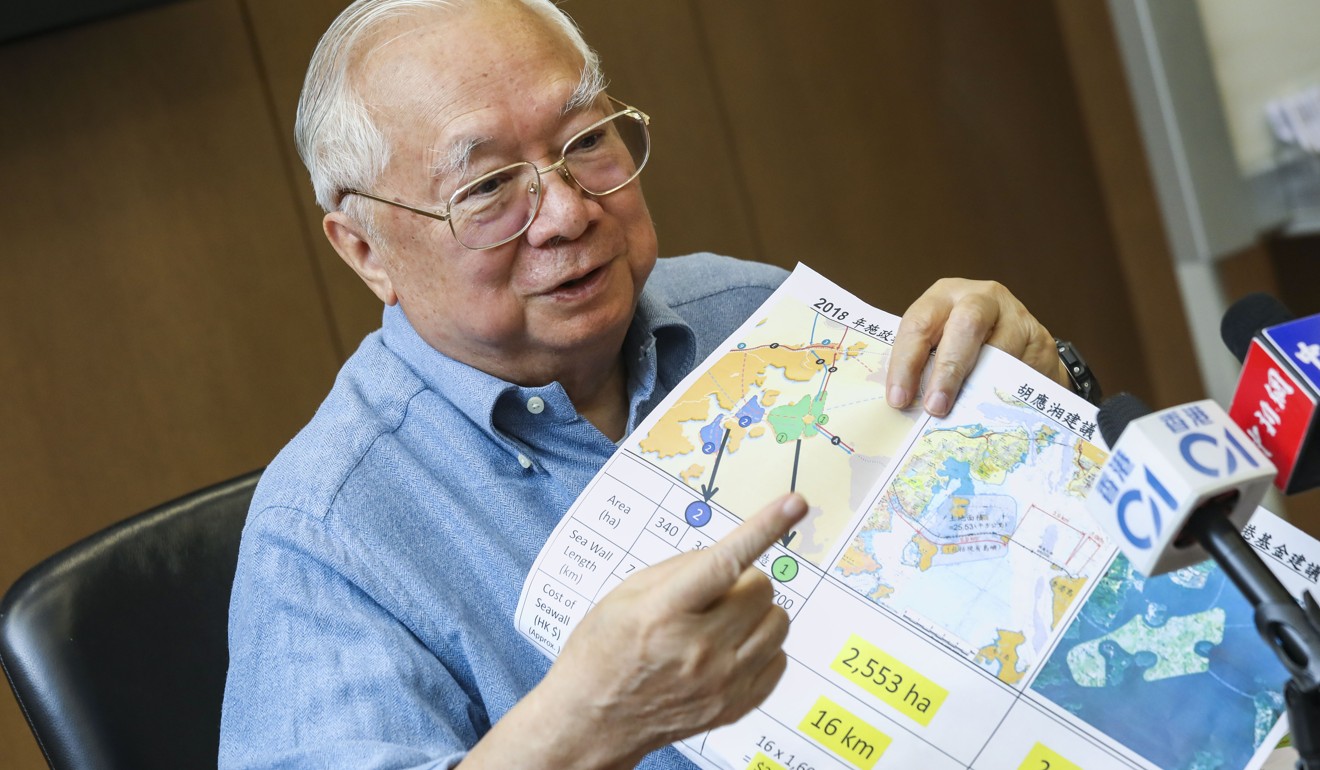
Outspoken property tycoon Gordon Wu Ying-sheung has upped the ante on Hong Kong’s reclamation plans by proposing to create 2,600 hectares (6,400 acres) of land for housing to the east of Lantau Island and another 445 hectares near Lamma Island.
Wu’s blueprint is more ambitious than the government’s proposal to reclaim 1,700 hectares east of Lantau Island. By aiming to link existing land masses in Hong Kong’s waters, it is also more complex than a plan raised by a think tank – headed by the city’s first chief executive Tung Chee-hwa – to reclaim 2,200 hectares in the area.
Wu, who first suggested in 1997 to reclaim a total of 10,700 hectares across Hong Kong, estimated that his latest plan near Lantau Island would cost HK$334.2 billion (US$42.6 billion), compared with the predicted cost of between HK$400 billion and HK$500 billion for the government proposal.
Land reclamation explained: the good, bad and ugly ways of pushing back the sea
During an interview with the Post and other media on Friday, the 82-year-old founder and chairman of Hopewell Holdings said it was lamentable that the average living space per capita in Hong Kong was just 173 sq ft – slightly higher than that of Bangladeshi capital Dhaka, which is the smallest in the world.
“Many young people can’t afford to buy flats amid soaring property prices, and a substantial amount of land is held by a few property developers,” Wu said.

He said he spent more than a year conducting the study after Tung, founder of think tank Our Hong Kong Foundation, sought his help for a solution to the city’s land woes.
Wu said the government’s “Lantau Tomorrow Vision”, under which reclamation around Kau Yi Chau and Hei Ling Chau could provide up to 400,000 flats, was not bold enough to resolve the housing crisis in Hong Kong.
Hong Kong still needs land reclamation, Carrie Lam insists
Under Wu’s proposal submitted to Chief Executive Carrie Lam Cheng Yuet-ngor on October 8, reclamation to the east of Lantau would link Kau Yi Chau, Hei Ling Chau, Peng Chau and Sunshine Island to create 2,600 hectares of land in total, leaving no water channels between the islands. Of this area, 2,180 hectares will be reclaimed land.
“The government coffers would be flush, with revenues of HK$857.1 billion from selling the land, and the newly created space can house 11 million,” he said. “The average living space would be 222 sq ft.”
He said 70 per cent of such flats would be earmarked for affordable public housing and priced at about HK$2,500 per square foot.
Wu expected the first batch of residents to settle in the newly built flats on the reclaimed land within four years of the project’s commencement.
The businessman, who in 1983 raised an idea with the Zhuhai municipal government to build a bridge linking Hong Kong with the mainland city, suggested in his latest plan to also build a bridge and rail link that would connect the newly reclaimed land to western Hong Kong Island.
He separately suggested conducting a study on reclamation along the eastern coastline of Lamma Island, which would cost HK$136.6 billion. Wu said that, coupled with the existing land mass of Lamma Island, the project could house a total of 760,000 people.
In a proposal submitted to then chief executive Tung Chee-hwa in 1997, Wu had suggested reclaiming a total of 10,700 hectares across Hong Kong, including reclaiming 3,280 hectares near Hei Ling Chau and another 2,400 hectares in northern and western Lantau.
His latest plan is based on the assumption that Hong Kong’s population would reach 10 million in the coming decades.
Hong Kong star Andy Lau voices support for land reclamation in promotional video
According to a Census and Statistics Department report in September last year, Hong Kong’s population will increase from 7.34 million in 2016 to 7.63 million in 2036 and peak at 8.22 million in 2043.
Albert Lai Kwong-tak, policy convenor of pro-democracy group Professional Commons, said Wu’s vision was “outdated” and paid no regard to sustainable development concepts such as ecological protection.
Lai said Wu, who also runs an infrastructure business, should declare his interests when advocating for such developments.








